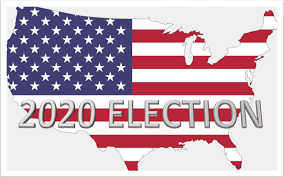By Cas Mudde

Most people globally are keen to be rid of Trump. Yet a far-right minority likes Trump and has become more committed to him
US presidential elections are not just national elections; they are global elections, too. Although the US presidency is not as all-powerful as many people think, it is certainly, both inside and outside of the US, the most powerful elected position in the world. Right now the world is looking at the US with great anxiety and expectation.
As Donald Trump fights to win a second term, most of the world cannot wait to see him go. A recent Pew Research poll of 13 OECD countries found Trump was the least trusted world leader. Only 16% of respondents said they had confidence in Trump “to do the right thing in terms of world affairs”, ranging from 9% in Belgium to 25% in Japan, with even Xi Jinping (19%) and Vladimir Putin (23%) scoring higher. And Trump’s incompetent Covid-19 response has pushed the reputation of both him and the US even further down.
In western Europe, in particular, huge majorities want Trump to lose next week. A recent YouGov poll in seven countries – Britain, Denmark, France, Germany, Italy, Spain and Sweden – shows that only some 15% hope Trump will win. While the vast majority want Joe Biden to win, however, roughly two-thirds of people across the seven countries said they don’t have high expectations of Biden. As in the US, much of the support for Biden in Europe seems to be more of a referendum against Trump. While only about 20% believe Biden would be a “good or great” president, more than two-thirds believe Trump has been a “poor or terrible” president.
But views about Trump are polarized outside the US, also. While only a minority internationally might like him, they have become more committed and more open about their support. Four years ago, most far-right parties and politicians were “shy” Trump supporters at best – mostly criticizing Hillary Clinton and the Democratic Party, but being quite cautious and uncommitted about Trump. Many far-right leaders pointed out that he was a mainstream conservative and not a nationalist, like them. While they hoped he would win – and in the process rattle, if not break up, the domestic and international political order – they worried that he would still be, in essence, yet another Republican president.
But it seems that far right leaders like what they have seen from Trump. As in 2016, the most outspoken European supporter of Trump is the Hungarian prime minister, Viktor Orbán, who has again been the first to openly and unequivocally endorse him. Still, even Orbán’s support for Trump is at least as much about opposition to Biden, as it was a deep hatred of Clinton before. As Orbán wrote in a Hungarian newspaper last month: “We root for Donald Trump’s victory, because we know well American Democratic governments’ diplomacy, built on moral imperialism. We have been forced to sample it before, we did not like it, we do not want seconds.”
Various far-right politicians were quick to publicly express support when Trump was in the hospital with Covid-19, from Alternative for Germany to Finns Party. Brazilian president and Trump mini-me Jair Bolsonaro took it a step further, stating: “I wish for a rapid recovery for the president of the USA, Donald Trump, and the first lady, Melania,” he wrote. “With faith in God, they will soon recover and the work of managing the country and his re-election campaign will not be affected.” Similarly, the Estonian Conservative People’s Party (EKRE) proclaimed: “Estonians have to keep their fingers crossed for Donald Trump, Biden doesn’t bring us anything good.”
Some far right leaders have been suspiciously timid in their public support for Trump in the past weeks. After organizing high-profile events with Trump earlier, notably “Howdy Modi” (in Houston) and “Namaste Trump” (in Ahmedabad), the Indian prime minister, Narendra Modi, has been less forthcoming in his support in the last weeks. Similarly, the Israeli prime minister, Benjamin Netanyahu, has been uncharacteristically cautious, including during his recent visit to the White House. Undoubtedly, recent polling will play a role here, as well as, perhaps, limited support for Trump among Indian Americans (22%) and Jewish Americans (30%), although both have increased slightly since 2016.
In a way, international support largely reflects domestic support for Trump. Among those open but uncommitted to him in 2016, the vast majority have now, four years later, accepted and embraced him as one of their own. It may be another reminder that brazen far-right politics do not necessarily scare away mainstream rightwing voters – as we should have known already from the recent re-elections of Fidesz in Hungary, the BJP in India and Law and Justice in Poland. This is because a significant part of the support for far-right leaders is based upon opposition to the political mainstream.
Still, whatever the outcome of the upcoming election, it is important to remember that the rise of the far right did not start with Trump’s victory and it will not stop with Trump’s defeat (should the polls be right this time). Europeans, Indians and Israelis have been voting in large numbers for far-right parties well before a Trump presidency was more than a skit on The Simpsons. They will continue to do so after 3 November, whether it is under President Biden or President Trump.
Cas Mudde is the Stanley Wade Shelton UGAF professor of international affairs at the University of Georgia, the author of The Far Right Today (2019), and host of the podcast Radikaal
THE GUARDIAN

Leave a Reply
You must be logged in to post a comment.